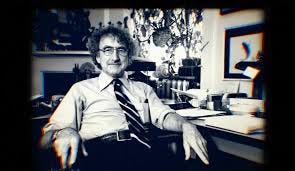You will celebrate Pride. Not “you may,” not “you might consider,” not even “here are some resources if you're interested.” No—the directive is clear. If you walk into ASU West Valley’s Fletcher Library this month, you'll be greeted by a display at the front entrance that says only one thing: “Celebrate Pride.”
It doesn’t ask. It commands.
Now, you won’t find this kind of enthusiastic instruction for any other sexual philosophy. There’s no "Celebrate Monogamy Month." No "Honor the Heterosexual Union That Made You" display. And ironically, not even a passing mention that every person on earth—including those in the LGBTQ+ community—owes their existence to the union of a mother and a father. The very biological reality that makes human life possible gets no parade, no signage, and certainly no institutional celebration.
But Pride? You will celebrate.
Here is an image that ASU sent out in its weekly student email for all students to see:
Now, I’m just a philosophy professor—not a physician, nor a public health official—but I do know this: when a public university issues cultural or moral directives, especially on matters of sexuality, it bears some responsibility for the full truth. Fletcher Library wants students to celebrate Pride, but nowhere do they mention the risks—not even a fine-print disclaimer. No note about the mental and physical health consequences associated with some of the behaviors championed by Alfred Kinsey’s experimental sex philosophy. Nothing about long-term spiritual effects. No links to peer-reviewed studies. Just a command to celebrate.
Imagine if the university library told students to "Celebrate Christianity." Surely someone would raise a red flag (Marx)—because to endorse one particular religion or philosophy is outside the scope of a state university. Or so we thought. Why is it that when endorsements are made and commands to celebrate are issued, it is never toward virtue and wisdom?
So what happens when a student follows ASU’s encouragement, suffers harm, and realizes later that no one warned them? That their institution—a state-run entity—took on the role of moral guide while withholding critical information? If ASU wants to play doctor, lawyer, and priest, could it find itself standing in court trying to defend its medical advice issued via library poster?
And make no mistake—this is medical, moral, and metaphysical advice, bundled together and handed out like a free pamphlet from the campus health center. But only for one philosophy. The others don’t even get a nod. Only Kinsey-Money.
Which raises the question: why is ASU so biased toward this particular sexual ideology? In a world where diversity is allegedly sacred and equity is the gold standard, it’s striking to see such overt preference. The university claims to promote inclusion, but then why does it exclude every view except the one that waves the rainbow flag?
This month, ASU didn’t just hang a banner. It hung a worldview. It didn’t just offer a celebration—it issued a commandment.
If ASU wants to be truly inclusive and give a voice to the voiceless (Christians and conservatives), then it might be time to check the Pride privilege.
It reminds me of this dialogue my friend told me about:
Milk: ASU is promoting Pride Month again. Their slogan this year is “We (Queers) are everywhere.”
Auggie: You mean as an observation, right? That there are people with unnatural sexual desires everywhere. ASU doesn’t actually tell them what to do with those desires… do they?
Milk: Actually, yes. First, they tell students to identify with the desire—make it the essence of who they are. Then, second, they say they ought to act on those desires.
Auggie: No way. But that’s the is/ought fallacy. They also warn about the health consequences of those behaviors, right? I mean the physical, mental, moral, and spiritual effects?
Milk: Not even close. The only “danger” they mention is repressing sexual desire. Acting on it? That’s presented as liberating.
Auggie: But in other areas ASU tells students to repress desires all the time. You’re not supposed to act on every impulse. Why make an exception here?
Milk: Because they’ve replaced morality with consent. As long as two—or more—people consent to stimulate each other’s bodies, it’s good. Even if it’s for pleasure or part of an occult ritual of sex worship.
Auggie: But surely ASU knows history is full of people who consented to do evil together.
Milk: My name’s not Shirley, and yes, they make an exception in this case.
Auggie: Can ASU even define “good” for a human?”
Milk: It’s doubtful. Their philosophers don’t talk about the good, and in rare exceptions when they do they use circular definitions like “wellbeing.”
Auggie: By giving out advice about what students ought to do, but not warning about the health consequences, doesn’t ASU open itself up to lawsuits?
Milk: I could see that happening from students who took this advice by administrators and professors who aren’t medical doctors but gave out medical advice that was misleading and harmful.
Auggie: Does ASU still claim to be a university—like, one that’s about seeking and teaching the truth?
Milk: Publicly, yes. But then it turns around and tells students it’s good to act out on these sexual desires, no questions asked.
Auggie: Why don’t they just follow the old liberal university model—stay neutral, don’t take a side on personal sexual behavior?
Milk: Because ASU isn’t a liberal university anymore. It’s an activist university.





